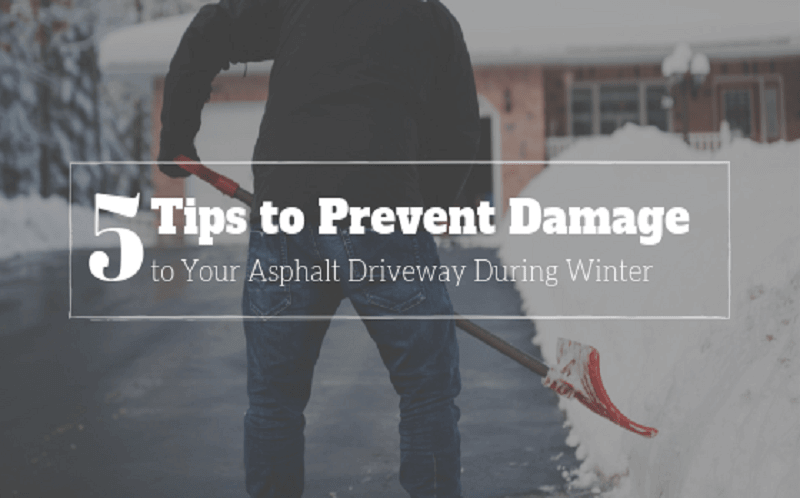Winter is the harshest season of the year for asphalt driveways as the excessive accumulation of ice and snow tends to melt and permeate the asphalt surface. Once the water starts to pool beneath, it freezes and expands causing the asphalt to swell up. As a result, minor cracks could start to develop and could further worsen thereby, creating larger fissures that we call “alligator cracks”. Consequently, when the ice and snow begins to melt, signaling the end of winter, it softens the asphalt hence drawing in more water which would eventually create potholes.
Of course, the freeze-thaw cycle is nature’s work that is beyond our capacity to control or stop as homeowners, but there are things that you can do to prevent it from further causing damage to your driveway. In addition, homeowners should also be aware that it wasn’t the only reason that people usually end up with a heavily damaged asphalt driveway after winter. Certain activities such as using metal shovels and rock salt can corrode, scrape and strain your asphalt driveway.
To help you keep your driveway in good shape during the winter, here, we’ll share with you our best tips on what-to-do and what-not-to-do so you can maintain your asphalt driveway in perfect condition.
1. Avoid the use of harsh chemical de-icing agents including those that contain rock salt.
Rock salt or sodium chloride is the most widely used de-icing agent that lowers the freezing temperature of ice causing the ice to melt at a much faster rate. Rock salt is also popular among homeowners not only because it is efficient in melting ice and snow, but also because it is cheaper than other de-icing products available in the market. However, the problem with rock salt is that it is also highly corrosive which can damage your asphalt. As an alternative, you can use sand instead of rock salt. Sand will also help you melt ice and snow and increase ground friction.
2. Don’t use metal shovels. Opt for rubber-bladed ones instead.
Using a metal shovel, especially those with a pointed end can scrape the aggregates off your driveway. Instead, a rubber-bladed shovel will help you not scrape your pavement. On the contrary, if you prefer to hire a professional to plow your driveway or you opt to do it on your own, make sure that the blade is lifted high enough not to scrape or damage the surface of your driveway.
3. Ensure that you have proper drainage in your home.
The number one rule of thumb in caring for an asphalt driveway is to prevent excessive amounts of water from pooling and seeping through the surface to avoid any structural damage. Hence, make sure that your gutter spouts drain water away from your driveway. Otherwise, you have a serious problem.
4. Avoid using spiked snow tires.
Spiked snow tires are helpful and efficient during extreme winter conditions. However, these tires will poke holes into your asphalt causing the surface to sink and further damaging your driveway over time.
5. Shovel regularly.
Clear up your driveway regularly particularly during wintertime to prevent ice and snow build-up. You would have a much easier time to plow snow away from your driveway if you clear your driveway as soon as you can.
By following this guideline, it’ll help you prevent damaging your driveway during the coldest months of the year. But if your driveway is already in a state of disrepair, don’t wait up for winter to cause even more damage, call a professional to do an asphalt driveway repair. Call driveway repair in Gloucester VA for a free estimate.
Asphalt paving companies can also book a consultation with https://www.pavingdomination.com/ to learn how they can grow their paving business.
































